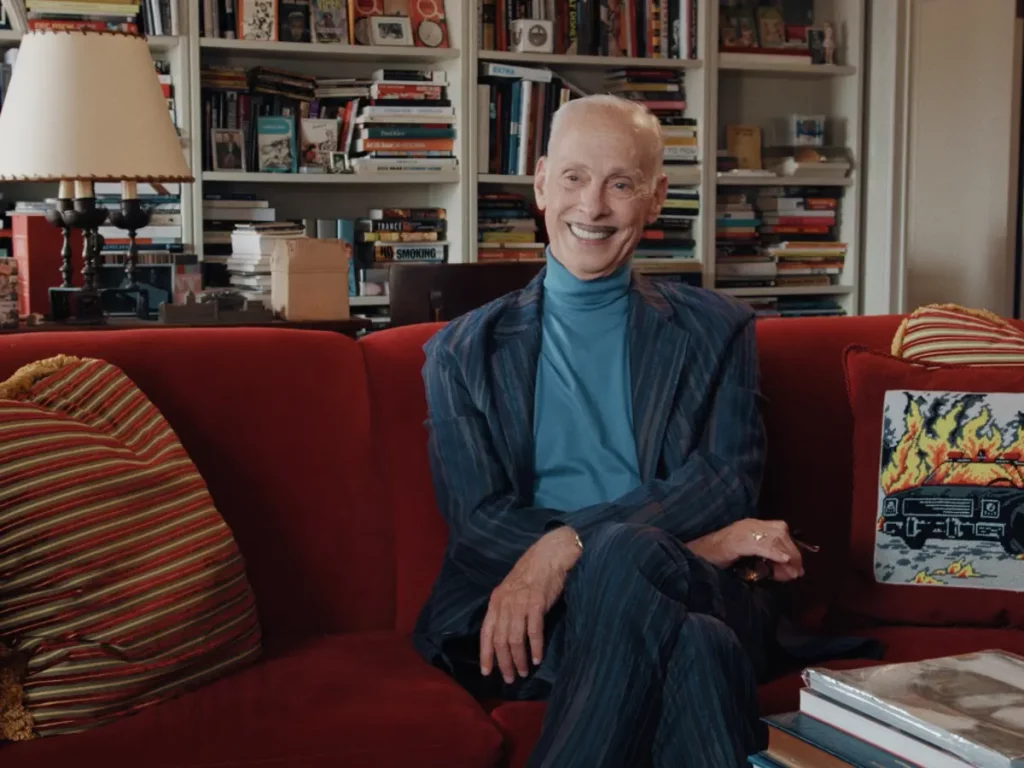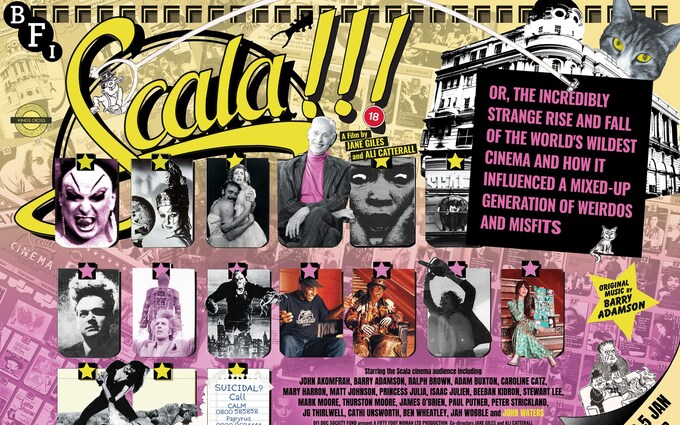Will Palmer reviews Scala!!!, a documentary exploring the heyday of the infamous Scala cinema, and how its eclectic programming broke boundaries and shaped future creatives
For those who found the 2022 Sight and Sound Critics Poll stuffy and boring, Scala!!! may provide the perfect antidote. Well-mannered costume dramas like The Leopard and The Piano make way for Borowczyk’s The Beast and Jarman’s Sebastiane. Ponderous Horror movies like The Shining make way for the pulp silliness of The Tingler. This is of course hyperbolic, and it would be reductive to claim these canons are polar opposites (there’s plenty of overlap between both), but the joy of Scala!!! comes from how it offers a vast swathe of cinematic history distinct from the traditional canon.
Moreover, the story of its 15-year history highlights the importance of personality and community in maintaining the vibrancy of the theatrical experience. At a point where there are few alternatives to Odeon, Vue and The Everyman, it’s hard not to agree with the nostalgic interviewees, even for viewers who never experienced the Scala cinema first-hand.
Existing from 1978 to 1993, first on Tottenham Street before moving to the bottom of Pentonville road, the Scala was a cinema which exhibited films outside the mainstream. Cult films, old school B-movies and art house affair were all within their remit, and with a suggestion box in the foyer, the audience too had a hand in deciding what was programmed.

The opening minutes of Scala!!! has a quote from John Waters which succinctly illustrates the importance of Scala as an institution:
“The Scala had magic. It was like joining a club – a very secret club, like a biker gang or something. It’s like they were a country club for criminals and lunatics and people that were high … which is a good way to see movies”.
The sense that it was the community, more so than the movies, that made The Scala special is reflected in the ethos of the documentary and its DVD release. Co-directed by Jane Giles and Ali Catterall, Scala!!! shows that no one person is responsible for cinema’s mythic reputation. Time is given, both in the main film and its special features, to the ushers and behind-the-scene operatives, demonstrating the importance of everyone involved in giving The Scala its unique personality.
The documentary itself is a series of interviews with many, many people who either visited or worked at the Scala cinema during its 15-year existence. By the end of its existence, struggling to deal with the rising costs of running a repertory cinema during a recession, the rise of home video and a court case involving an illegal showing of A Clockwork Orange, the Scala had come to represent a hub of resistance against Thatcher’s Britain. Its dilapidated, punk aesthetic and regular all-nighter screenings inviting outcasts, misfits and those down on their luck into a space free of judgement. This romanticised view of the film provokes mixed feelings, is the Scala emblematic of a utopian cinema, a platonic ideal where you can at once be unabashedly yourself whilst losing yourself in the lives of the people on the screen? Or, is it the natural reaction to the stifled, angry Britain it existed in, its rise just as inevitable as its fall? Certainly, Barry Adamson’s score and Osbert Parker’s animation do a great job of situating the film within this time-frame, but is it wrong to believe that something like this could exist in 2024? Certainly, it seems unlikely.

Overall, if the documentary appeals to you, then the DVD is a must-buy. The cover art and booklet are gorgeous, and it’s jam-packed with special features which elaborate on almost every aspect of the core documentary. Additional interviews, animations, and a tour through the Scala archive are complimented by a selection of short films shown at the Scala in its last few years. This generous selection of bonus material gives a viewer all they need to further immerse themselves in the world of the Scala from top to bottom.
Scala!!! should be of interest to anyone who either has fond memories of a bygone sub-culture, or those unsatisfied with the offerings of mainstream film history. If the whims of ‘good-taste’ leave you alienated, then explore the world of the Scala, where the vile and the bizarre ruled supreme, and find an alternative film history that better suits your needs. Likewise, amusing anecdotes of the eccentric clientele, both disgusted and disgusting, cumulate in an appreciation of how the Scala existed as a community of outsiders, providing a space for the weird and disillusioned to find themselves in the thrills and spills of the Scala’s Screen.




